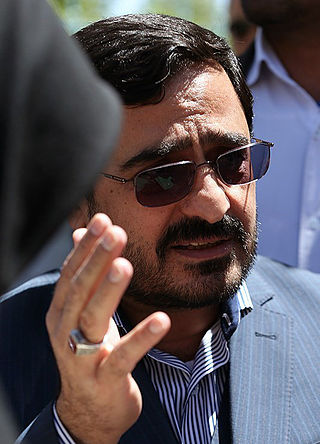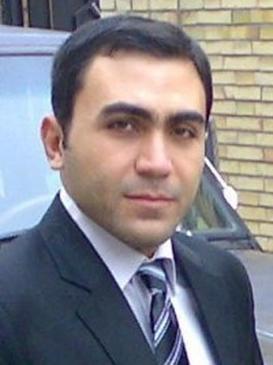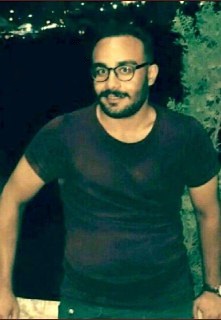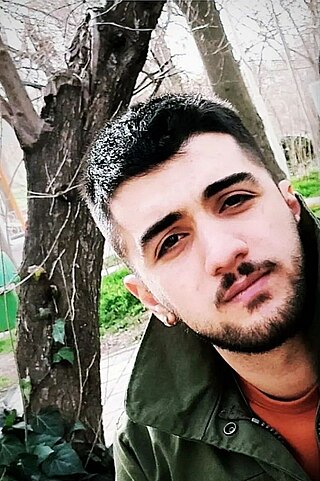The Iranian Green Movement or Green Wave of Iran, also referred to as the Persian Awakening or Persian Spring by the western media, refers to a political movement that arose after the June 12, 2009 Iranian presidential election and lasted until early 2010, in which protesters demanded the removal of Mahmoud Ahmadinejad from office. Green was initially used as the symbol of Mir Hossein Mousavi's campaign, but after the election it became the symbol of unity and hope for those asking for annulment of what they regarded as a fraudulent election. Mir Hossein Mousavi and Mehdi Karroubi are recognized as political leaders of the Green Movement. Grand Ayatollah Hossein-Ali Montazeri was also mentioned as spiritual leader of the movement.

Zahra "Ziba" Kazemi-Ahmadabadi was an Iranian-Canadian freelance photojournalist. She gained notoriety for her arrest in Iran and the circumstances in which she was held by Iranian authorities, in whose custody she was killed. Kazemi's autopsy report revealed that she had been raped and tortured by Iranian officials while she was at Evin Prison, located within the capital city of Tehran.

Evin Prison is a prison located in the Evin neighborhood of Tehran, Iran. The prison has been the primary site for the housing of Iran's political prisoners since 1972, before and after the Iranian Revolution, in a purpose-built wing nicknamed "Evin University" due to the number of students and intellectuals housed there. Evin Prison has been accused of committing "serious human rights abuses" against its political dissidents and critics of the government.

A forced confession is a confession obtained from a suspect or a prisoner by means of torture or other forms of duress. Depending on the level of coercion used, a forced confession is not valid in revealing the truth. The individuals being interrogated may agree to the story presented to them or even make up falsehoods themselves in order to satisfy the interrogator and discontinue their suffering.

Mehdi Karroubi is an Iranian Shia cleric and reformist politician leading the National Trust Party. Following 2009–2010 Iranian election protests, Karroubi was put under house arrest in February 2011 – reportedly ordered by the Supreme Leader of Iran – without officially being charged, although he is accused of being a "seditionist" and "traitor". As of 2021, he is still confined to his house.

The state of human rights in the Islamic Republic of Iran has been regarded as very poor. The United Nations General Assembly and the Human Rights Commission have condemned prior and ongoing abuses in Iran in published critiques and several resolutions. The government is criticized both for restrictions and punishments that follow the Islamic Republic's constitution and law, and for "extrajudicial" actions by state actors, such as the torture, rape, and killing of political prisoners, and the beatings and killings of dissidents and other civilians. Capital punishment in Iran remains a matter of international concern.
Torture in Bahrain refers to the violation of Bahrain's obligations as a state party to the United Nations Convention against Torture and Other Cruel, Inhuman or Degrading Treatment or Punishment and other international treaties and disregard for the prohibition of torture enshrined in Bahraini law.

From the Imperial Pahlavi dynasty, through the Islamic Revolution (1979), to the era of the Islamic Republic of Iran, government treatment of Iranian citizens' rights has been criticized by Iranians, international human rights activists, writers, and NGOs. While the monarchy under the rule of the shahs was widely attacked by most Western watchdog organizations for having an abysmal human rights record, the government of the Islamic Republic which succeeded it is considered still worse by many.

Saeed Mortazavi is an Iranian conservative politician, former judge and former prosecutor. He was the prosecutor of the Islamic Revolutionary Court, and Prosecutor General of Tehran, a position he held from 2003 to 2009. He has been called as "butcher of the press" and a "torturer of Tehran" by some observers. Mortazavi has been accused of the torture and death in custody of Iranian-Canadian photographer Zahra Kazemi by the Canadian government and was named by 2010 Iranian parliamentary report as the man responsible for the abuse of dozens and death of three political prisoners at Kahrizak detention center in 2009. He was put on trial in February 2013 after a parliamentary committee blamed him for the torture and deaths of at least three detainees who participated in the protests against President Mahmud Ahmadinejad's reelection. On 15 November 2014, he was banned from all political and legal positions for life.
Prison rape or jail rape is sexual assault of people while they are incarcerated. The phrase is commonly used to describe rape of inmates by other inmates, or to describe rape of inmates by staff. It is a significant, if controversial, part of what is studied under the wider concept of prison sexuality.

After incumbent president Mahmoud Ahmadinejad declared victory in the 2009 Iranian presidential election, protests broke out in major cities across Iran in support of opposition candidates Mir-Hossein Mousavi and Mehdi Karroubi. The protests continued until 2010, and were titled the Iranian Green Movement by their proponents, reflecting Mousavi's campaign theme, and Persian Awakening, Persian Spring or Green Revolution.
Following the 2009 Iranian presidential election, protests against alleged electoral fraud and in support of opposition candidates Mir-Hossein Mousavi and Mehdi Karroubi occurred in Tehran and other major cities in Iran and around the world starting after the disputed presidential election on 2009 June 12 and continued even after the inauguration of Mahmoud Ahmedinejad as President of Iran on 5 August 2009. This is a timeline of the events which occurred during those protests.
Kahrizak Detention Center is a detainment facility operated by the Judicial system of Iran in Kahrizak, Tehran Province, Iran.
Mohsen Rouholamini was a graduate student in the computer engineering department at the University of Tehran. He died in July 2009 at the Kahrizak detention center following his arrest in connection with protests of the 2009 presidential election in Iran. Rouholamini was the son of Abdolhossein Rouholamini, a prominent Iranian conservative and adviser to presidential candidate Mohsen Rezai.

Ramin Pourandarjani was an Iranian physician who examined prisoners wounded and killed during the 2009 Iranian election protests. Pourandarjani was born on 9 June 1983 to a middle class family in a northwestern district of the city of Tabriz. He died under mysterious circumstances on November 10, 2009, at the age of 26. Tehran's public prosecutor Abbas Dowlatabadi said Ramin Pourandarjani died of poisoning from a delivery salad laced with an overdose of blood pressure medication. The findings fueled opposition fears that he was killed because of what he knew. Pourandarjani had worked as a physician at the Kahrizak detention center. Iranian authorities earlier had claimed at various points that Pourandarjani had been injured in a car accident, committed suicide, or died of a heart attack in his sleep at the health center at the police headquarters in Tehran where he worked.
Dissidents have been detained as political prisoners in Saudi Arabia during the 1990s, 2000s, 2010s and 2020s. Protests and sit-ins calling for political prisoners to be released took place during the 2011–2012 Saudi Arabian protests in many cities throughout Saudi Arabia, with security forces firing live bullets in the air on 19 August 2012 at a protest at al-Ha'ir Prison. As of 2012, recent estimates of the number of political prisoners in Mabahith prisons range from a denial of any political prisoners at all by the Ministry of Interior, to 30,000 by the UK-based Islamic Human Rights Commission and the BBC.
On July 26, 2010, seventeen prisoners from Ward 350 of Evin prison, Iran, executed a 16-day hunger strike to protest solitary confinement, as well as the poor living conditions within the prison. This included the lack of necessary medical treatment, arbitrary detention, denial of access to legal counsel, suspension of visitation privileges and abuse from prison guards. Subsequent to the hunger strike, authorities placed the seventeen prisoners in solitary confinement in Ward 240, while also prohibiting them from making phone calls, visiting their families, or contacting their lawyers. Overall, the action did not achieve its objectives of improving conditions within the prison or gaining access to legal counsel. However, one of the prisoners on strike, Babak Bordbar, was released for unknown reasons on August 10.

Sina Ghanbari was a young Iranian protester and consequently a political prisoner. He was arrested by the Iranian Islamic republic government’s police during the 2017–2018 Iranian protests and died in the quarantine section of Evin Prison after being transferred there on January 7, 2018.
Hassan Zare Dehnavi, known as Judge Haddad or Hassan Haddad was an Iranian judge and prosecutor. He was the Deputy Prosecutor for Security Affairs of the Tehran Public and Revolutionary Prosecutor's Office of the Iranian Revolutionary Court. He was accused of multiple human rights violations against dissenters of the Iranian regime during his career; according to Radio Farda, he had a long history of human rights abuses, convictions of many political and civil activists, and his violent and illegal treatment of defendants.

Mohammad Mehdi Karami was a 21-year-old Iranian-Kurdish man who was executed by the Islamic Republic of Iran for his involvement in the Mahsa Amini protests. He was convicted of Fisad-e-filarz for allegedly being involved in the killing of a Basij militiaman during protests in Karaj commemorating the 40-day anniversary of Hadis Najafi's death. Karami was executed alongside 39-year-old volunteer children's coach Seyyed Mohammad Hosseini, another man who was also convicted of Fisad-e-filarz for his alleged involvement in the same killing. Both Karami and Hosseini asserted their innocence, and human rights organizations have accused Iranian authorities of using "shoddy evidence" to convict them.










